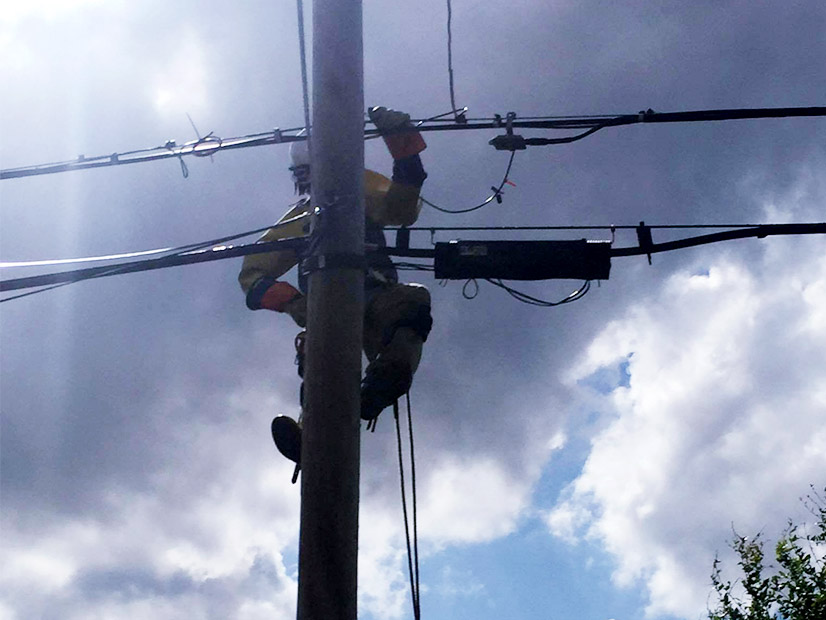The Connecticut Public Utilities Regulatory Authority on Thursday proposed massive civil penalties for Eversource Energy and United Illuminating following their inadequate response in the aftermath of Tropical Storm Isaias last August.
In notices of violation, PURA assessed $30 million in penalties against Eversource and $2.1 million on UI for issues identified in its ruling last week sternly criticizing the utilities’ storm response, which left hundreds of thousands of Connecticut residents without power for as many as nine days. (See Conn. Utilities Found Deficient in Tropical Storm Isaias Response.)
Isaias damaged power lines, utility poles and transformers, and debris blocked roads, hindering power restoration efforts. During the storm, 50% of Eversource customers and 33% of UI customers lost power.
PURA cited Eversource, the state’s largest electric distribution company with approximately 1.3 million customers, and UI, a subsidiary of Avangrid with 340,000 customers, for noncompliance “in emergency preparation or restoration of service in an emergency” and “for violations of accident reporting requirements.”
The agency fined Eversource 2.5% of its more than $1.1 billion in rate year distribution revenue in 2020 — the maximum for nonperformance under state law — amounting to about $28 million. Eversource was fined an additional $1.62 million: up to $500 for each of its violations of accident reporting requirements that PURA said began in August and continued for up to 90 days.
UI’s nonperformance penalty was 0.5% of its distribution revenues of $356.3 million, amounting to about $1.78 million, and $360,000 for its accident reporting violations.
The noncompliance penalties will ultimately be line-item credits on customer bills on a per-kilowatt-hour basis beginning Aug. 1 and lasting through July 31, 2022, with appropriate interest. The money from the accident reporting violations goes to Connecticut’s general fund. The civil penalties follow the reduced rates of return on equity stipulated by PURA last week: 0.9% for Eversource and 0.15% for UI. The reduction aligns the performance of the utilities’ management during future storm response efforts with their financial performance.
Eversource spokesperson Tricia Taskey Modifica told RTO Insider that the company is reviewing the notice and “looks forward to getting through the final stages of the process.” Modifica said that while Eversource “worked tirelessly to restore power as quickly as possible, we recognize the hardships our customers and communities experienced, and we acknowledge there are areas for improvement.”
“We are working — and will continue to work — in good faith with our communities, customers and regulators to improve our performance,” Modifica said.
UI spokesperson Ed Crowder also told RTO Insider that the company is reviewing the notice and “considering our next steps.”
“We are disappointed PURA did not consider the facts we presented during the investigation,” Crowder said. “The facts show that we faithfully followed our emergency response plan. We will continue to work with PURA to improve our preparation for and response to storms and other emergencies.”
Both utilities have until May 26 to file written responses to request hearings with PURA that contest the penalties. The subsequent hearings would be held on June 10-11. PURA’s final decision is scheduled for July 14.
In a tweet, PURA said it “cannot comment on the issuance of proposed [notices of violation] but looks forward to discussing its final decision in July.”
In a statement, Connecticut Attorney General William Tong said that Eversource “failed its customers and put Connecticut families at risk after Tropical Storm Isaias.”
“I fought for swift, severe penalties from the beginning, and this $30 million penalty is appropriate. Eversource must pay for their failures,” Tong said. “This penalty is a strong first step to hold Eversource accountable for their disastrous performance, but this matter is far from over. We will continue to fight before PURA to ensure that Eversource cannot put the full cost of their failures back on ratepayers.”




